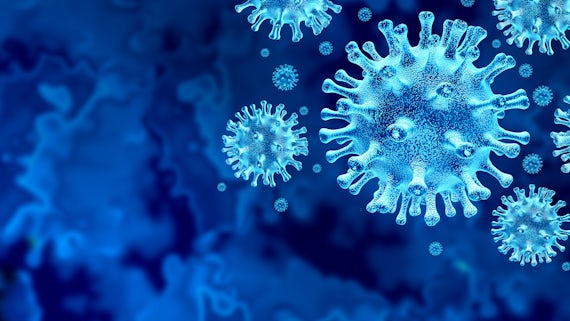Blood differences in long COVID patients
5 April 2023

New research has found molecular signature differences in the blood of patients who fully recover from COVID-19 and those who develop long COVID.
The study, which involved Cardiff University, examined blood samples from COVID-19 patients at different stages of the disease, including early stages and patients with long COVID. It highlighted major differences in the immune responses between those who recovered and those who developed long-term complications.
Professor Bernhard Moser from Cardiff University’s School of Medicine who was part of the research team said: “A considerable number of patients infected with Sars-Covid-2 during the pandemic developed long COVID, a chronic inflammatory condition characterised by fatigue, muscle pain, shortness of breath, and other symptoms.
“The reason why some COVID-19 patients develop long COVID is currently not known but may be multi-factorial. Gaining insight into this disease at a molecular level may open avenues for treatment.”
The research highlighted that long COVID patients showed differences in chemokines, a group of proteins secreted in response to COVID-19 that orchestrate inflammatory immune responses.
Professor Moser said: “Our research showed that levels of chemokines were elevated in COVID-19 patients, contributing to the inflammation we see during COVID-19 infection. Importantly, we also found that COVID-19 patients produce auto-antibodies against chemokines.
“In patients that recover from COVID-19, molecular analyses of these antibodies revealed that they neutralise the function of a set of chemokines, suggesting that they act against inflammation and contribute to disease resolution.
“But in patients with long COVID, auto-antibodies that work against three distinct types of chemokines are missing, suggesting that lack of their production contributes to chronic inflammation underpinning long COVID.
“This study shows that the molecular signature in blood differs between patients who fully recover from COVID-19 and patients who develop the chronic inflammatory condition associated with long COVID. Auto-antibodies for certain chemokines are beneficial for COVID-19 patients in that they seem to prevent the development of long COVID.”
The team hope their research could provide the foundations to develop future treatments for those people who are likely to develop long COVID.
“This study has revealed a potential novel therapy to prevent long COVID by treating COVID-19 patients with these auto-antibodies. Future studies will identify the most beneficial auto-antibodies that may be used in clinical trials,” added Professor Moser.
Share this story
Find out what we've been doing to tackle the pandemic.



